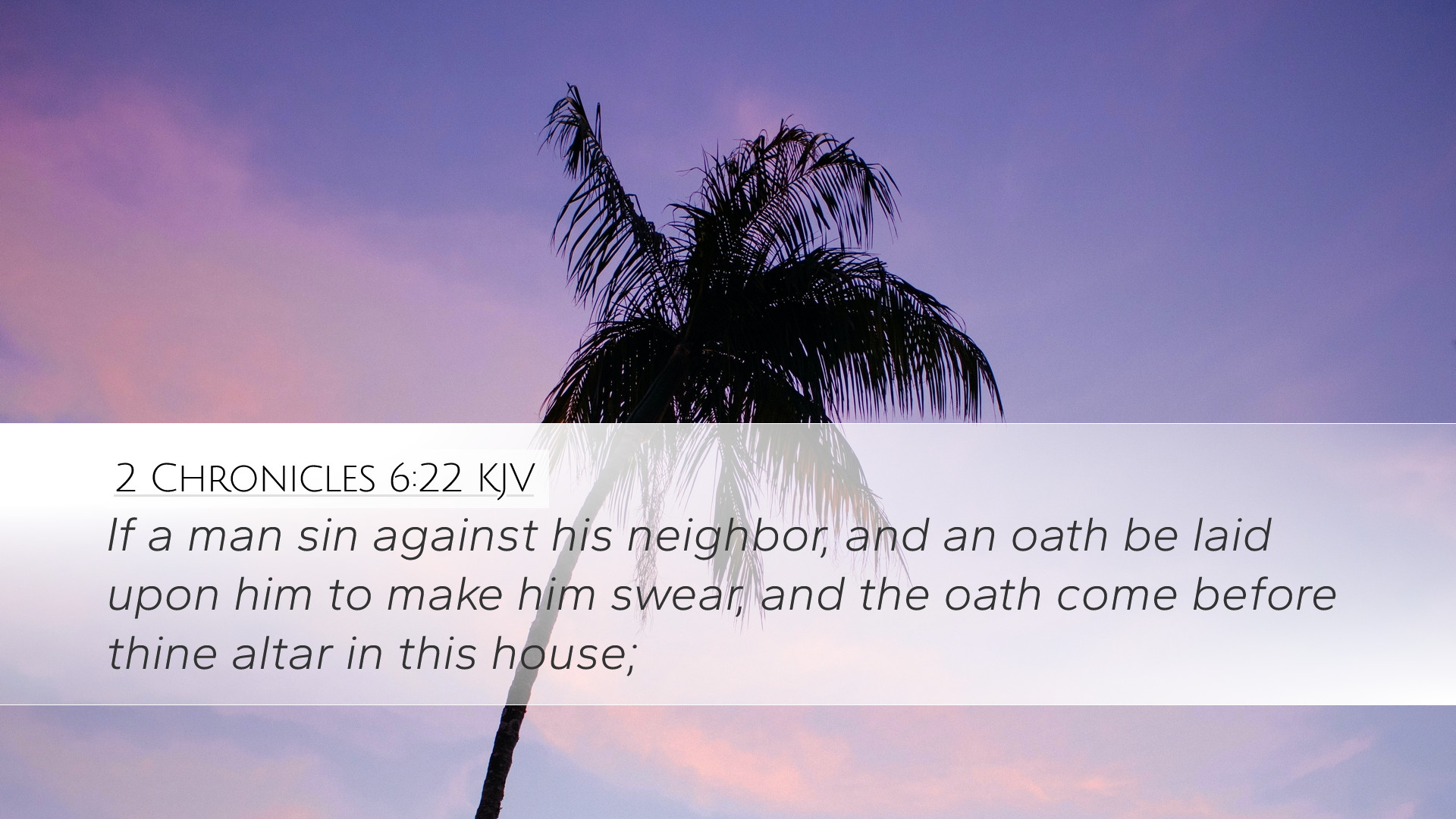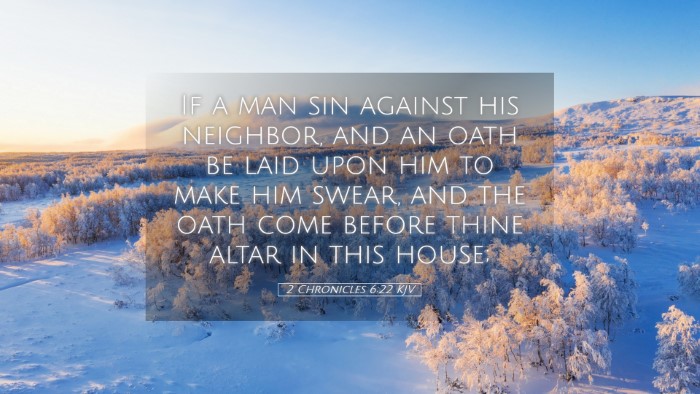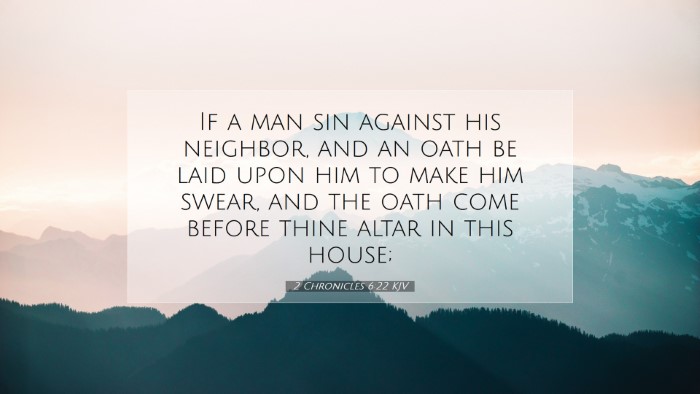Commentary on 2 Chronicles 6:22
Verse: "If a man sinned against his neighbor, and an oath be laid upon him to make him swear, and the oath come before thine altar in this house;"
Introduction
The passage in 2 Chronicles 6:22 presents a significant element within Solomon's prayer of dedication of the temple. This verse highlights the themes of justice, accountability, and the role of the temple as a divine arbiter of oaths and covenants among the people.
The Context of Solomon's Prayer
In the broader context, Solomon’s prayer is a pivotal moment reflecting the aspirations and eventual reality of Israel's worship practices. As the temple is dedicated, Solomon intercedes for the people, recognizing that human frailty often leads to sinfulness.
Public Domain Commentators' Insights
Matthew Henry
Matthew Henry emphasizes the importance of oaths as serious commitments in Israel’s legal and social framework. He asserts that swearing by the altar represents a solemn invocation of God's presence as a witness. He notes that this reference to an oath is critical, as it places the judicial weight of confession and accountability squarely before God, emphasizing the temptation of human beings to breach trust.
Albert Barnes
Albert Barnes focuses on the implications of the verse for justice and the role of the altar. He observes that the temple serves as a place where disputes can be settled, and oaths can be affirmed. Barnes suggests that the acknowledgment of sin against a neighbor reveals a communal aspect of wrongdoing that necessitates divine intervention. He highlights that God’s presence in the temple underscores His readiness to hear and judge fairly.
Adam Clarke
Adam Clarke reflects more on the legalistic aspects of the verse, elucidating the significance of a sworn oath. Clarke explains that the oath, when brought to the altar, marks a profound recognition of divine authority in human affairs. He elucidates that such an act demands a premium on integrity and ethical conduct within the community, thereby reinforcing the notion that everyday moral and ethical behavior is crucial in maintaining national and spiritual stability.
Theological Implications
Each commentator addresses the underlying theological implications of the verse:
- Divine Oversight: The presence of God in the temple signifies His active oversight of the moral fabric of society. When individuals commit to honesty under oath, they invite God’s scrutiny, thereby reflecting divine law in earthly governance.
- Restorative Justice: The verse suggests a pathway to restoration through acknowledgment of sins. The act of swearing an oath before God's altar necessitates a confrontation with one’s wrongdoing and promotes reconciliation.
- Corporate Responsibility: The communal essence of the verse communicates the importance of collective morality among the Israelites, reiterating that individual actions affect the broader community. This societal interconnectedness is a theme echoed throughout Scripture.
Practical Applications for Ministry
The implications of 2 Chronicles 6:22 invite pastors and church leaders to encourage a culture of transparency and accountability in their congregations. Insights from the various commentators suggest that:
- Encouragement to Forgiveness: Churches should promote mechanisms for reconciliation when members wrong one another, showcasing God's desire for restored relationships.
- Education on Oaths and Commitments: Pastors can preach on the gravity of speaking truthfully, especially within the context of legal and marital oaths, emphasizing the sacred nature of these promises.
- Creating Community Integrity: Leaders must work to foster environments where ethical conduct is paramount, encouraging congregants to view their relationships as reflective of their commitment to God.
Conclusion
2 Chronicles 6:22 offers profound insights into the interactions between humanity, God, and community ethics. The perspectives of Henry, Barnes, and Clarke merge to form a compelling case for understanding the moral weight of sin and the significance of divine agency in fostering justice among neighbors. In this way, Solomon's prayer not only serves as a theological foundation for worship but also as a guide for practical living within the faith community.


